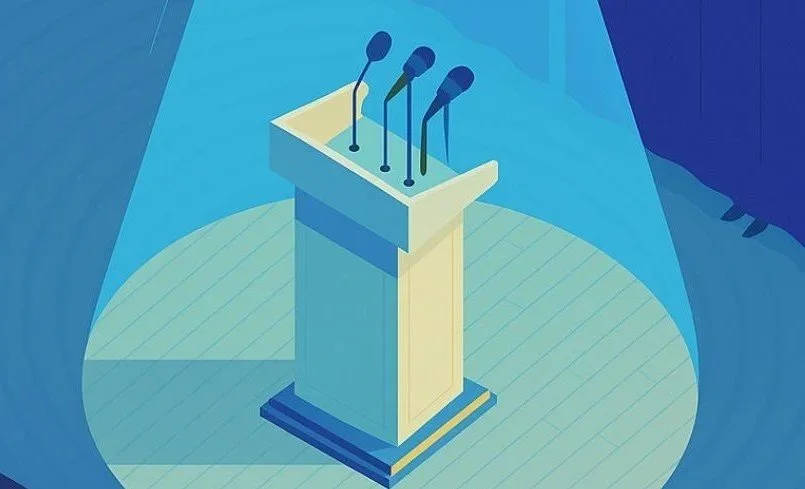Where We Sit, How We See: Making Sense of What Divides Us
Uganda’s political and social landscape is increasingly defined by division. From Parliament to social media, the rhetoric of “us versus them” echoes louder than ever. Each side insists on its truth, accuses the other of failing the country, and leaves little room for shared understanding. This is not a utopian analysis, but a diagnostic one born from personal reflection and inspired by a maxim first articulated in the United States: “Where you stand depends on where you sit.”
Coined by Rufus E. Miles Jr., a U.S. government official, this idea, known as Miles’s Law, reminds us that perspectives are shaped by positions. The seat you occupy, whether as a party leader, opposition politician, civil servant, business owner, or ordinary citizen, defines what you see, what you fear, and what you prioritize. No Member of Parliament, Minister, or Business Executive will see the world the same way as a young jobseeker struggling with unemployment, a young woman trafficked to Dubai in search of better opportunities, or a single mother fighting to support her children.
Granted, these leaders may have once lived similar experiences, but hedonic adaptation offers a convenient excuse for short memories. This psychological concept suggests that people quickly return to a baseline level of happiness despite major life changes. Neither group is necessarily dishonest; they are simply standing where they sit. This concept is common to all of us, and there is nothing wrong with that.
When I reflect on Uganda’s political and social impasse, in my view, it is not merely a clash of personalities, backgrounds, or ideologies; it is a clash of seats. Those in power emphasize continuity, peace, and stability, and warn against abrupt change because their position demands it. Opposition voices speak of injustice, exclusion, and the urgency of reform, because their seat outside the system forces that lens. Civil servants, often caught in between, walk a tightrope balancing their obligation to service delivery with institutional loyalty.
The danger for everyone lies not in having different seats but in refusing to acknowledge that others sit elsewhere. When we dismiss alternative perspectives as illegitimate, we close the door to empathy and dialogue. Uganda cannot afford this. Our history already bears the scars of division. Our future demands that we think more broadly and, crucially, that we feel each other’s pain and constraints. In the now-famous words of Counsel David Mpanga, “We shall never see the Uganda we want until we develop a central nervous system that enables us to feel each other's pain.”
Drawing from an industry I know well, I have seen firsthand how the oil sector can transform not only producing regions but the country at large. It is not irrational for host communities to demand a fair share of the benefits, given that these resources are located in their backyard. Meanwhile, national leaders are obligated to consider the bigger picture, centralized planning, and long-term economic stability. Both perspectives are valid, each shaped by where the speaker sits. The challenge is not who is right, but how we listen.
As we go through the upcoming electoral period, it is increasingly important for leaders, both new and outgoing, to recognize that calls for reform are not acts of hostility, but reflections of lived frustration. For opposition politicians, it means acknowledging the weight of responsibility that incumbents carry in preserving order and stability. For citizens, it means moving beyond cynicism to understand the structural constraints policymakers face. Each seat carries its burdens; none is without limits.
If we are to bridge the divides threatening our development, we must cultivate the habit of seeing through others’ eyes. Uganda’s greatest resource is not oil, land, or even our youthful population; it is our collective ability to imagine ourselves in each other’s positions. That is the foundation of trust. And without trust, development falters.
This introspection will be especially critical during the upcoming election period, when financial demands placed on political candidates often lead to a cycle of transactional politics. Upon winning, many leaders quickly forget the electorate that got them there, and a cycle of corruption begins.
For many Ugandans, corruption is not an abstract policy issue; it is a daily reality that erodes trust and blocks access to basic services. From inflated procurement deals to bribes at the local government offices, the sense of injustice is visceral. Meanwhile, some officials view corruption as a systemic challenge too entrenched to uproot overnight, or as a risk to be managed quietly to preserve institutional stability. Again, both views stem from where one sits.
But corruption is not just a matter of perspective; it is a barrier to progress. It deepens inequality, undermines public confidence, and fuels the very divisions we seek to heal. If leaders dismiss public anger towards it as mere populism, and citizens see every official as complicit, the space for constructive dialogue collapses.
The concept of looking at things from a different seat does not excuse poor leadership or silence accountability. It calls for humility. It reminds us that the road to national progress is not paved with more protests, financial placations, threats, blackmail, or coercion but with deeper listening. We must build platforms where diverse seats are not only acknowledged but heard. And everyone must be open to participating without exception and without fear of persecution. Only then can we sit together and plan for a Uganda that works for all.


